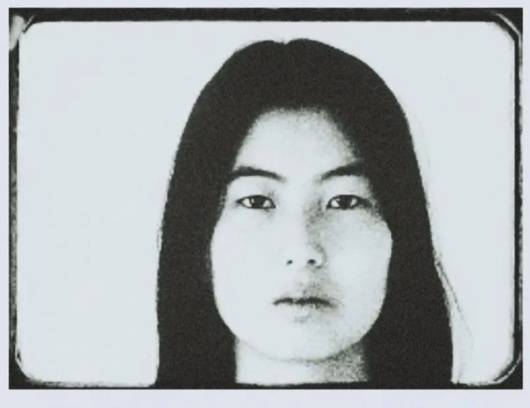a bi-weekly column
by michelle ampofo ’25
staff writer
The purpose of this column is simple—to carve out a space for myself in The Void, to categorize my thoughts, to mindlessly ramble, and to connect to other Black women who relate and might (for whatever reason) be reading. When thinking of how I wanted to contribute to Down Magazine this year, I struggled with a concept because I had no meaningful think piece to write about. After mulling over that thought, I realized how sad that is. And it made me think: Why is there no space where Black women talk about the Don’t Worry Darling drama, all the ways season two of Euphoria sucked, and random shit like that? Is it assumed that we don’t?
So I am making the decision to house this column in Down Magazine, as opposed to other campus publications, to show that young Black women are more nuanced than their collective pain, and that we have complexity besides our suffering. To show that Black women could (and in fact, do) read widely, enjoy “regular” activities and should be able to freely talk about things other than their trauma and suffering. To show that we also have regular young adult experiences, and the normal, happy, everyday things that happen to us are worth just as much.
So maybe this column is a sort of resistance? A way to extricate myself from the narrow confines society says is Black femininity? Idk.
✶✶✶
Lately, I’ve been listening to SZA on repeat. What spell has she cast on the Black girl’s soul? What does it mean that I’ve been listening to “Broken Clocks” and “Garden (Say It Like Dat)” the most, the first a song that laments the feeling of being left behind, and the second a song where she questions whether she is deserving of love… I think I’ve found a home in SZA’s music because it expresses the confusion of growing up, fluctuating self worth, and feeling emotions that are difficult to explain.
Well, something inexplicable happened to me the other day—I fell in love. For a moment. And the way it happened was simple. We met in the library, and he looked like the type of guy who would in every way destroy me. It would be a relationship where I was constantly tested and quizzed, assessed and judged; shamed because I haven’t read Foucault or Marx (according to my subsequent Yalies search, he’s a philosophy major), but I’m not entirely sure that would matter.
I feel I’ve regressed since coming back to campus, at least as it pertains to love. It’s confusing to me how I, as a woman studies major and a proponent of the idea that relationships/marriage benefit men in a way that they don’t benefit women, have longed to be in a relationship much more intensely since getting here. A classic example of theory vs praxis, it seems.
A part of it definitely has to do with the fact that it feels like a large number of my friends coupled up over the summer, another part being that society makes single women feel like they are defective for not being “attached.” That’s what a relationship essentially is, right? An attachment, a possession, the loss of a certain independence, the shrinking of one’s self for the union of the pair, a binding. So, what is it about relationships that is so enticing? (Be mindful of the fact that I am writing these words in the stacks, and written on the wall in front of me is “I want to lose my virginity PLEASE,” “My fantasy is to fuck someone random in the staxxx,” “I <3 sex,” “Please eat me out,” “cum ;).” I don’t even know what to say.) A sacrifice of some kind is made when we commit to a relationship, and we hope that that sacrifice will work in our favor. So I want a relationship; I want a reduction. But in that reduction perhaps I’ll feel complete.
Read:
I’m taking a course this semester on the Ukrainian born-Brazilian writer, Clarice Lispector, and every week I fall more and more in love. While painfully underrated in the United States, Lispector is a literary icon in Brazil and her work is highly regarded. If you are interested in womanhood, sexuality, philosophy, existentialism, mysticism, or mania (the list goes on), her work is for you.
“Preciousness” by Clarice Lispector
In “Preciousness,” we follow the internal monologue of a teenaged school girl, her navigation through a highly patriarchal society, and the change she undergoes after an “encounter” with men she tries so desperately to avoid. The story explores topics of loss of innocence, beauty, vulnerability, power, and identity.
“The Buffalo” by Clarice Lispector
A nomadic feminist journey in <i>The Buffalo</i> by Clarice Lispector | Post-Scriptum
I would also suggest reading Lispector’s “The Buffalo,” in which we follow the unnamed main character as she makes her way through a zoo. While seeing each animal, she experiences internal conflict because she sees the caged animals as a reflection of herself and the restraints that confine her as a woman in society. It’s pretty abstract, so reading the attached analysis was super helpful for my understanding of the story.
Earlier this month, the Yale Review published a collection of essays surrounding the work of Theresa Hak Hyung Cha’s magnum opus, Dictée. I read this book for class last year and it made me think deeply about identity, loss, displacement, and the limitations of language. The novel is genre-bending and operates as a text that does not water itself down for the sake of the reader. I think I enjoyed reading it so much because it does not smooth over or erase Cha’s history, but has come to terms with it nonetheless. It does not explain itself or its contradictions. There are no contradictions—many things can be true at once.
“The Stakes of Dictee: An Introduction to a Famously Difficult Work” by Ken Chan
The Yale Review | Ken Chen: “The Stakes of Dictee”
“Reclaiming Our Language: Dictee as a feminist ritual” by Zahra Patterson
The Yale Review | Zahra Patterson: “Reclaiming Our Language”
VANITY IS THE ENEMY: An Interview with Ottessa Moshfegh
This article regarding Ottessa Moshfegh might be the weirdest, most uncomfy interview I‘ve ever read, but nonetheless highly entertaining. A few days ago, I was talking with some friends about her book My Year of Rest and Relaxation, and the general unlikability of its main character. We talked about the idea of disgust, depravity, and depression being viewed as subversive when attached to a beautiful blond haired, blue eyed white woman (the main character’s model-esque beauty was painstakingly repeated throughout the novel), and it made us wonder what kind of woman is able to rebel. If the main character wasn’t conventionally attractive, her disgustingness (which is something she herself prizes), rudeness, and lack of direction probably would not have been so embraced by readers of the novel. It reminds me of the running gag on TikTok, “is that a good outfit, or is she just pretty?” Beauty and aesthetic is so determinant of how things are received in society. As I existed yesterday, hunched over my bed, scarfing down a burrito while looking at the heap of garbage on the floor, probably wouldn’t be as revolutionary, but alas.
P.s. Reading this is doubly interesting because Moshfegh and the interviewer, Luke B. Goebel, met during this interview and are now happily married. (It turns out their weird hostility was actually fliration. Nice.)
1984 by George Orwell
Yes, I know. More on that next time.
Watch
Monica Hernandez’s latest podcast video on Youtube where she talks about the beloved submissive woman trope.

After that, perhaps follow up with The Wizard Liz’s “You are a clown,” which I resonated deeply with this week.

“Don’t Worry Darling” by Olivia Wilde Florence Pugh
Go drunk with your friends and laugh while pointing at the screen. Go a second time and laugh even harder. (Stop it, Alice!)
Listen:
a short playlist:
Les Fleurs by Minnie Riperton
Time Moves Slow by BADBADNOTGOOD
Cigarettes And Coffee by Otis Redding
ROS by Mac Miller
Peach by Kevin Abstract
Good Days by Sza
Broken Clocks by Sza
Garden (Say It Like Dat) by Sza
Paper Bag by Fiona Apple
Thinkin Bout You by Frank Ocean
that’s it for now,
michelle
currently in: my hopelessly romantic, yet delusional era xx
Source: Funeral Parade of Roses (Toshio Matsumoto, 1969)



